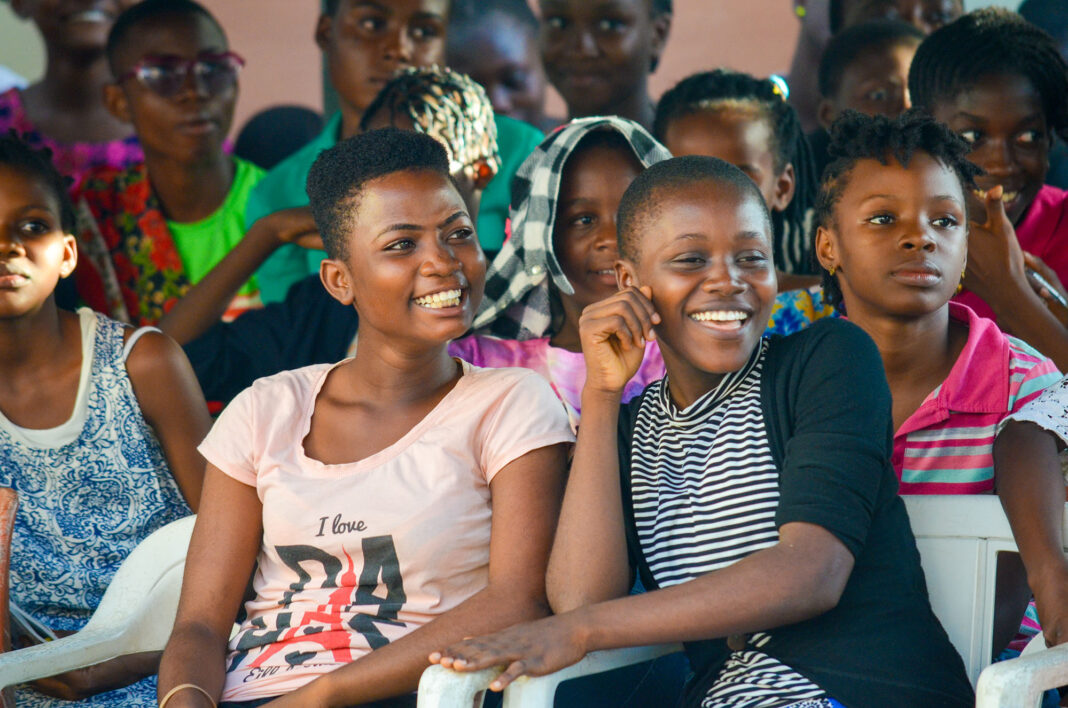In a major step toward promoting gender equality in Nigeria, top government officials and traditional leaders have pledged their commitment to adopting comprehensive policies that support the inclusion and empowerment of the girl child across all sectors.
The commitment was made during the 6th edition of The Osasu Show (TOS) Symposium, themed “Girls Today, Leaders Tomorrow: Advancing Women Representation Through Policy.” The event, held at the National Assembly Library, Abuja, brought together prominent figures including Vice President Kashim Shettima, Sultan of Sokoto His Eminence Sa’adu Abubakar, Senate President Godswill Akpabio, and Deputy Speaker of the House of Representatives Benjamin Kalu, among other dignitaries.

Speakers at the symposium underscored the importance of creating environments where girls can flourish and fulfil their potential, regardless of socio-economic limitations. They stressed that improving girls’ access to education, healthcare, and economic opportunities is vital for Nigeria’s overall development.
A key highlight of the discussion was the proposal to reserve seats for women in both national and state assemblies, aimed at ensuring adequate female representation in governance and policy-making.
Representing the Vice President, Hauwa Liman, his Technical Adviser on Women, Youth Engagement, and Impact, reaffirmed the administration’s recognition of women as pivotal contributors to nation-building. She noted that enhancing women’s participation in parliament is a strategic step toward building a stronger and more inclusive Nigeria.
The Sultan of Sokoto, His Eminence Sa’adu Abubakar, reflected on Nigeria’s pre-colonial history, noting the significant roles women played in politics and education. He urged the nation to rediscover and uphold these values while addressing today’s challenges.
He emphasized the need for collective action to improve girl child education and promote a positive narrative about Nigeria’s future.
“Together, we can achieve our goals through the National Assembly. Let’s prioritise the education of our girls at the highest level and support one another — from the president to local leaders and citizens,” the Sultan stated.

Deputy Speaker Benjamin Kalu cited UNICEF statistics indicating that about 189 million girls globally are householders, stressing that girls represent “possibility, not vulnerability.”
Convener of the symposium, Osasu Igbinedion Ogwuche, highlighted the urgent need to close the gap between elected representatives and their constituents while amplifying the voices of vulnerable groups. She lamented the low representation of women in Nigeria’s parliament, where the country ranks 184th globally and last in Africa.
She advocated for the adoption of reserved parliamentary seats for women, describing it as a move to strengthen democracy and unlock Nigeria’s full potential.
“This initiative is about justice, representation, and progress. When women are at the table, nations prosper. When girls are empowered, societies thrive,” Osasu said.
The symposium concluded with a collective call for action from government officials, traditional leaders, and advocates to ensure that policies supporting the girl child translate into real, measurable change across Nigeria.




